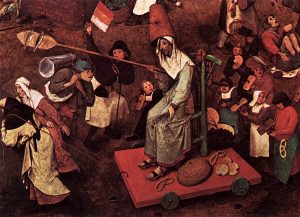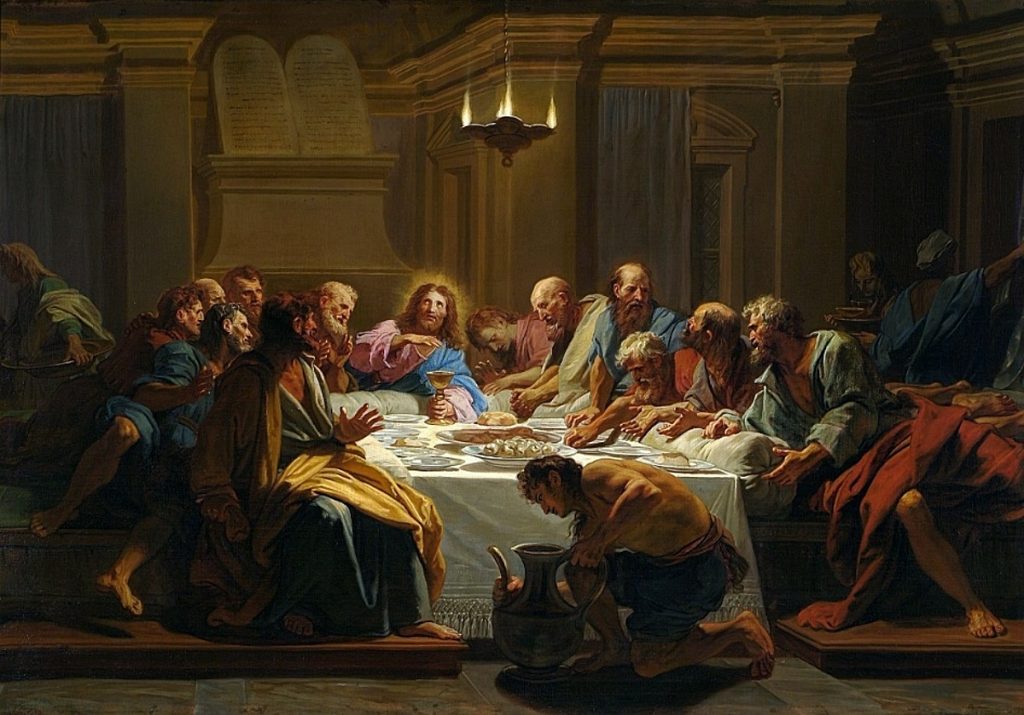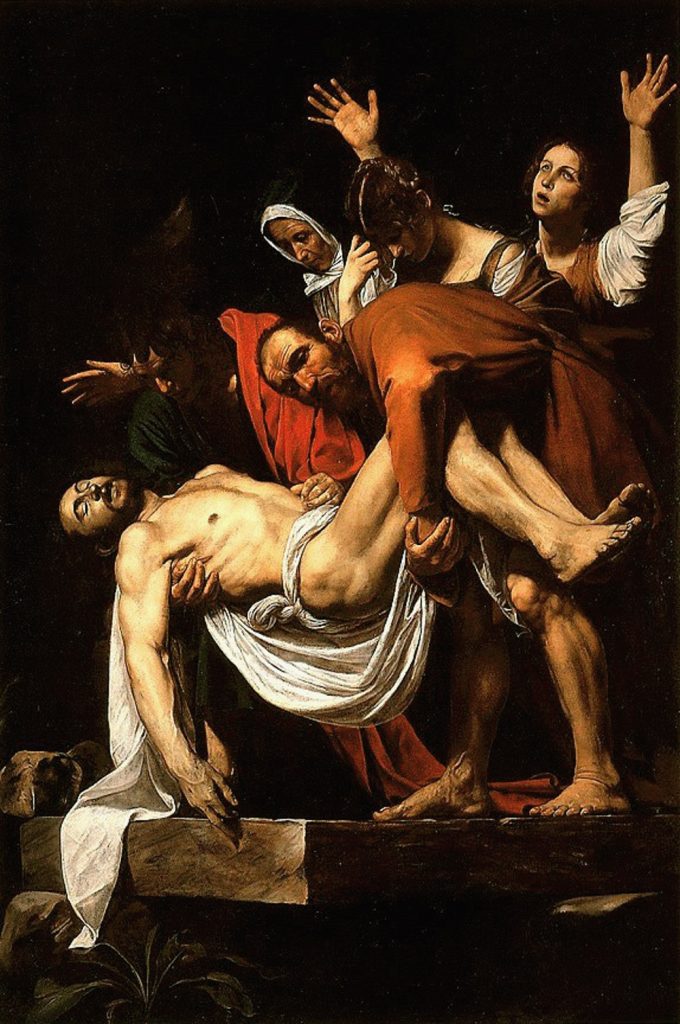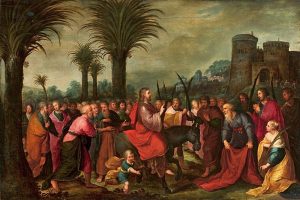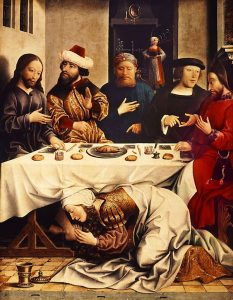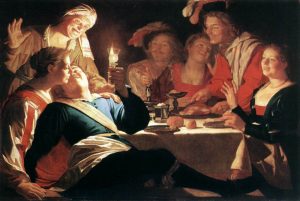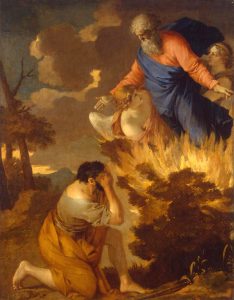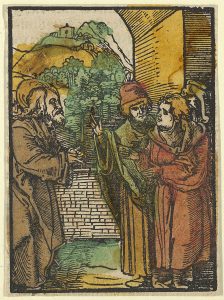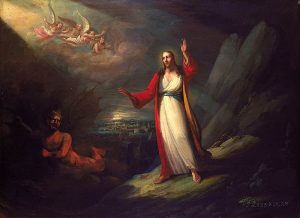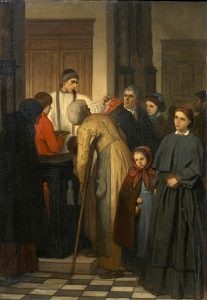Illuminations on the Lectionary readings for Feb. 22, 2026 (Lent 1A)
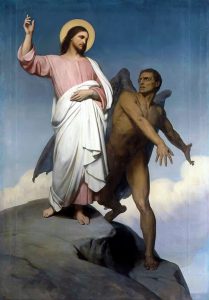
The Temptation of Christ (1854), painting by Ary Scheffer (1795-1858). Walker Art Gallery, Liverpool, England. (Click image to enlarge.)
First Reading: Genesis 2:15-17; 3:1-7
Sunday’s readings begin the penitential season of Lent with a scriptural grounding in the theology of temptation and sin. Our first reading draws from the second creation legend in Genesis: Eve and Adam are tempted, give in, and eat the fruit that God had told them not to touch. Not even God’s warning that the fruit would bring death was strong enough to block the overpowering temptation that came with the crafty serpent’s promise: Godlike knowledge of good and evil? Yes, please! Temptation can be powerful, but so is the shame that comes with realizing that we have distorted our relationship with God and each other, a loss of loving connection that we know as sin.
Psalm: Psalm 32
Profound guilt may indeed come with the recognition that we have done wrong, failed in our trust, and separated ourselves from God through sin, as we hear in Psalm 22. Guilt’s heavy hand weighs on us, the Psalmist sings. Guilt dries us out, withering our bones, leaving us groaning in pain. But then comes the joy: the relief and glad cries that burst out when we acknowledge our wrongdoing, confess our transgressions, and receive God’s loving deliverance from the pain of sin.
Second Reading: Romans 5:12-19
In his letter to the Christians in Rome, Paul draws a direct connection between the sin of Adam and the divinity of Jesus Christ, the son of God. This would have been an important image for the members of the church in Rome as they struggled to restore relationships between the church’s pagan converts and its Jewish Christians who were returning from exile. Paul reminds this community that Adam, the first of creation, gave in to the temptation of the fruit and brought death into the world. But now, he goes on, Jesus has been incarnated as one of us. This act of righteousness restores all with justification and life through God’s free gift of grace.
Gospel: Matthew 4:1-11
This passage follows immediately after Jesus was baptized by John, when Jesus hears the voice of God declaring him God’s beloved Son. Now, in what seems a startling change of direction, the Holy Spirit leads Jesus into the wilderness to be tempted by the devil. This may seem a very strange thing for the Holy Spirit to do, but the Spirit works in mysterious ways. Jesus, famished after 40 days of fasting, encounters the devil – not a scary red-horned creature but a figure akin to the Adversary who tested Job’s faith in that familiar Hebrew Bible story. The devil tries to test Jesus, tempting him three times to perform miracles to help himself. But Jesus holds steadfast, resisting all the temptations and ordering Satan away.

